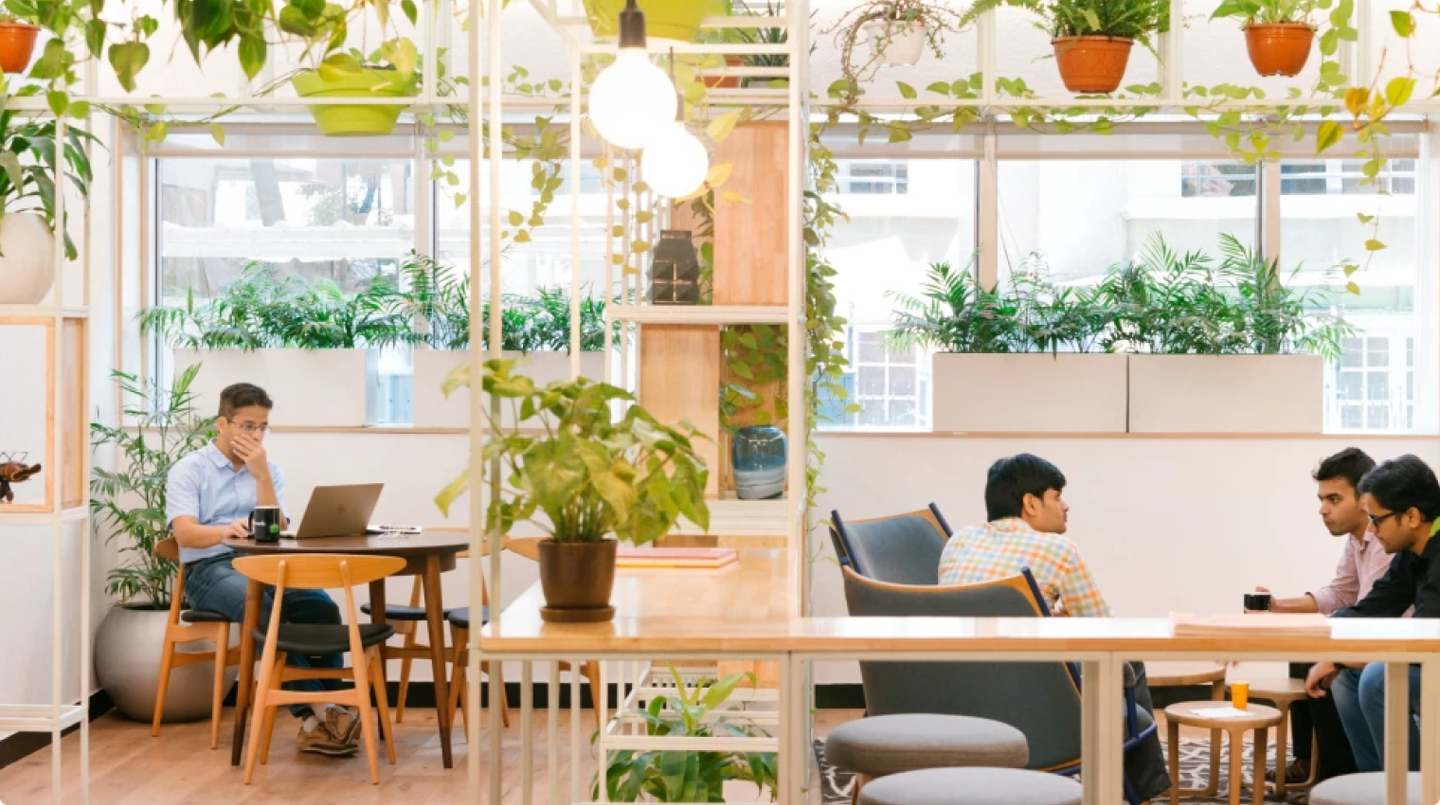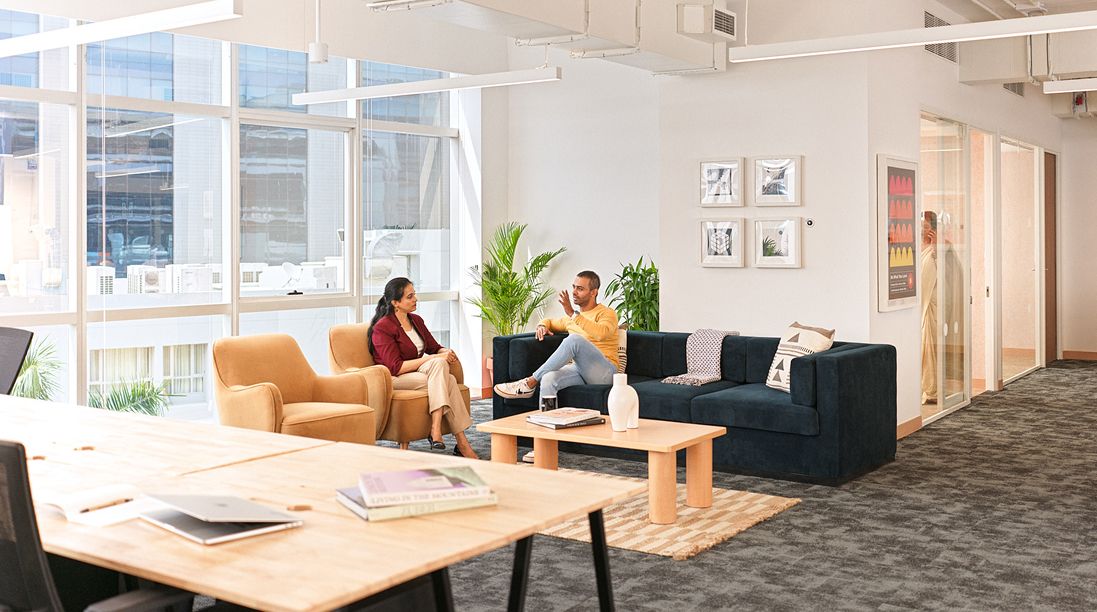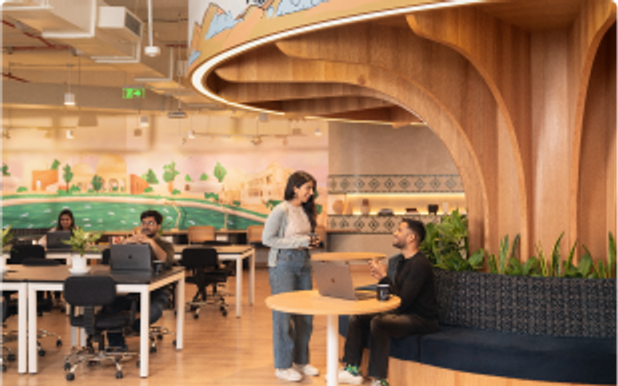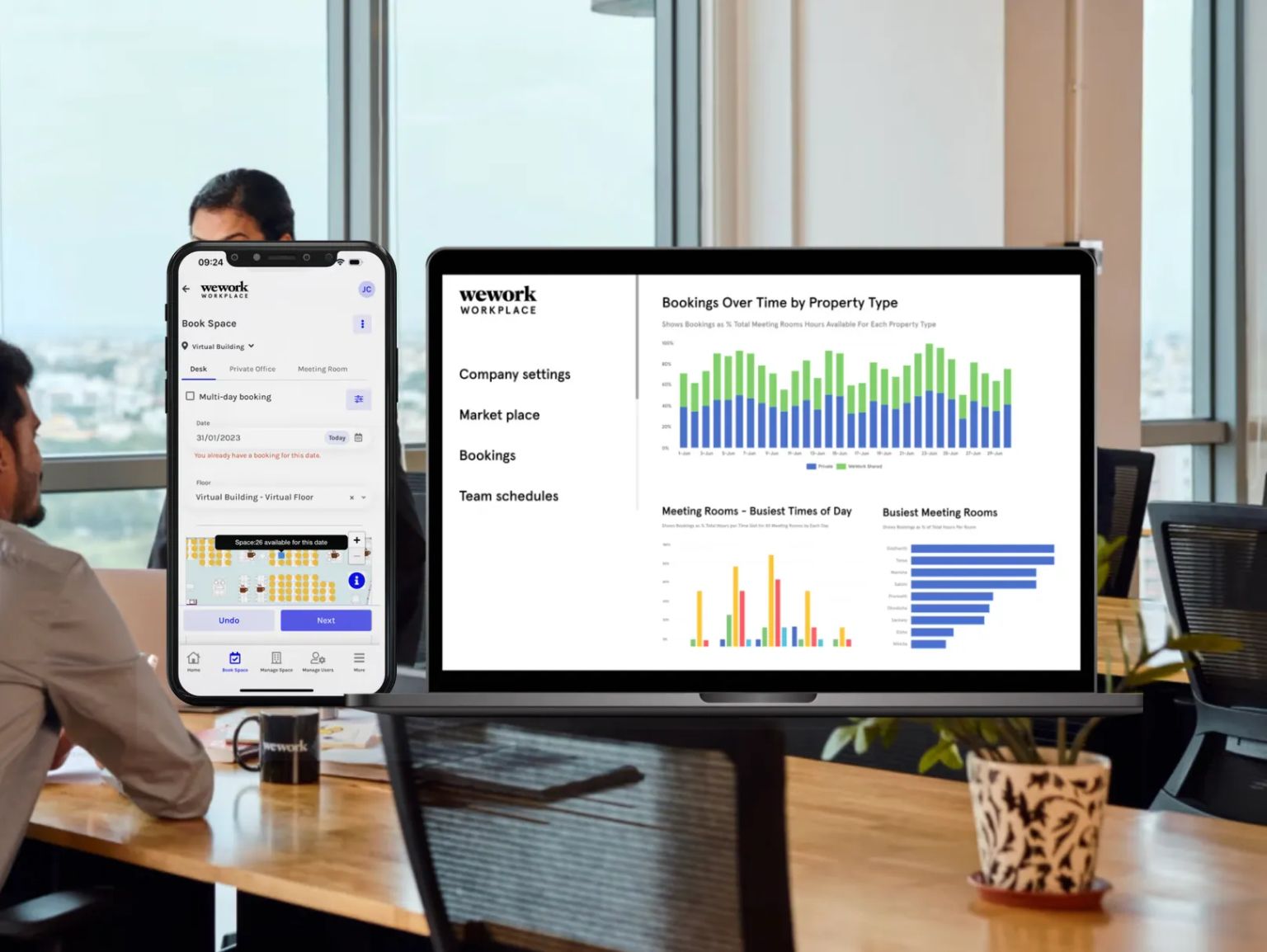NEWS & INSIGHTS
5 Trends for the flexible workspace industry in 2024

Find the top 5 trends in flexible workspaces for 2024 with WeWork for example hybrid work, activity-based workspaces, wellness-focused designs etc. Read more here!
The concept of flexible workspaces has changed the work landscape. Gone are the days when employees were confined to a nine-to-five routine at the same desk, in the same office. Flexible workspaces offer a dynamic approach to how we work, fostering creativity, productivity, and collaboration.
As we move further into 2024, several trends are set to shape the flexible workspace industry. Whether you are searching for a flexible workspace near you or are considering a flexible office layout for your business, understanding these trends will help you stay ahead of the curve.
Trends for the flexible workspace industry in 2024
1. Hybrid work models
The hybrid work model, which blends remote and in-office work, is becoming popular among organisations. Flexible offices are now the go-to solution for companies looking to implement this model. Flexible coworking spaces allow employees to choose where they work on any given day, ensuring they have the right environment for their tasks. This trend is driven by the need for a better work-life balance and reduced commuting time.
2. Technology-driven spaces
In the upcoming years, technology will play a key role in shaping flexible workspaces. From smart lighting and climate control to advanced booking systems and high-speed internet, the integration of technology will make flexible shared workspaces more efficient and user-friendly.
3. Sustainability and eco-friendly designs
As environmental consciousness grows, so does the demand for sustainable office spaces. Flexible workspaces are increasingly adopting green practices, such as using recycled materials, implementing energy-efficient systems, and providing facilities for recycling and composting. The trend towards eco-friendly designs not only reduces the environmental footprint but also creates a healthier and more inspiring work environment.
4. Activity-based workspaces
Activity-based workspaces focus on designing office spaces as per the needs of different functionalities in the organisation, facilitating productivity for individual and collaborative work. Many organisations are now adopting this trend as it helps in creating a flexible workspace that is tailored to the specific needs of their teams.
5. Wellness and community-focused spaces
The emphasis on employee well-being and community building is reshaping the design of flexible workspaces. Features such as wellness rooms, fitness centres, and community areas for networking are becoming a norm in flexible coworking spaces. These spaces not only promote a healthy lifestyle but also foster a sense of belonging among employees, enhancing overall job satisfaction and productivity.
Also Read About: What is Workplace Flexibility?
FAQs
What is the difference between a flexible workspace and a traditional office?
The key difference between a flexible workspace and a traditional office is the level of adaptability and shared resources. Traditional office spaces usually have fixed layouts with designated desks and offices for each employee. On the other hand, flexible workspaces offer a variety of seating arrangements, including hot desks, meeting rooms, and private office spaces, that can be adjusted based on the needs of the business.
What is the future of flexible office space?
The future of flexible office space looks promising, with continuous growth and innovation. As businesses increasingly adopt hybrid work models and prioritise employee well-being, the demand for flexible shared workspaces is expected to rise. Advancements in technology will further enhance the functionality of these spaces.
Also Read: 9 Things to Consider When Looking for an Office Space
Related Blogs:

NEWS & INSIGHTS
The world of finance saw a drastic shift in its functional trajectory the moment it was hit by the wave of AI. Like all the other fields of commerce,

NEWS & INSIGHTS
In the evolving landscape of workplace design, the open office concept has gained significant popularity. This modern approach aims to foster collaboration, enhance flexibility

